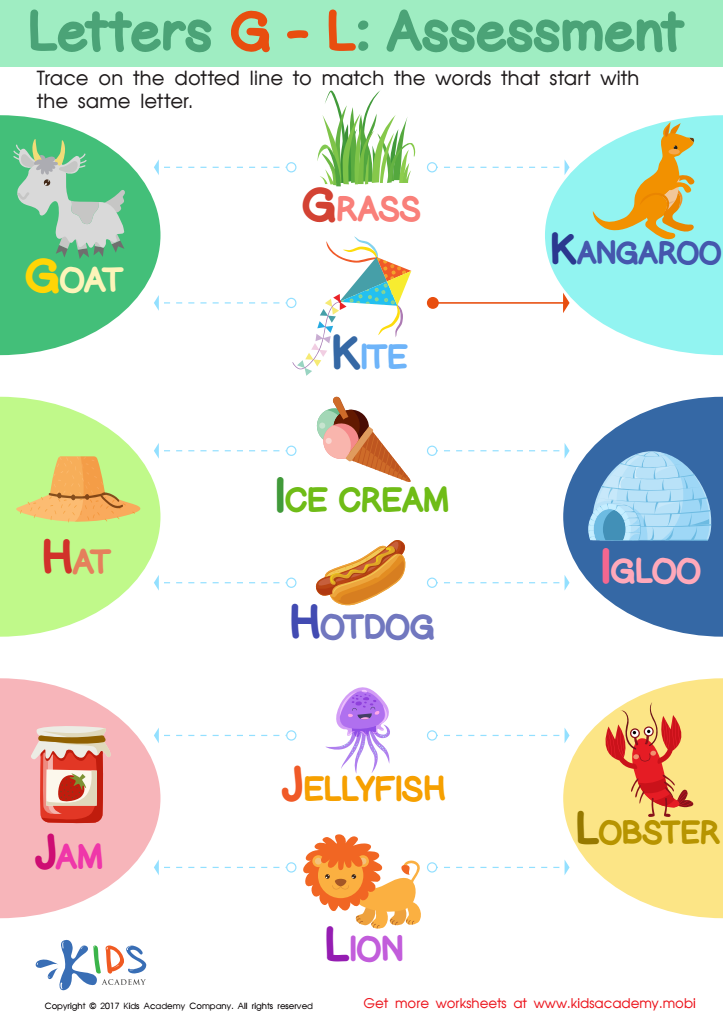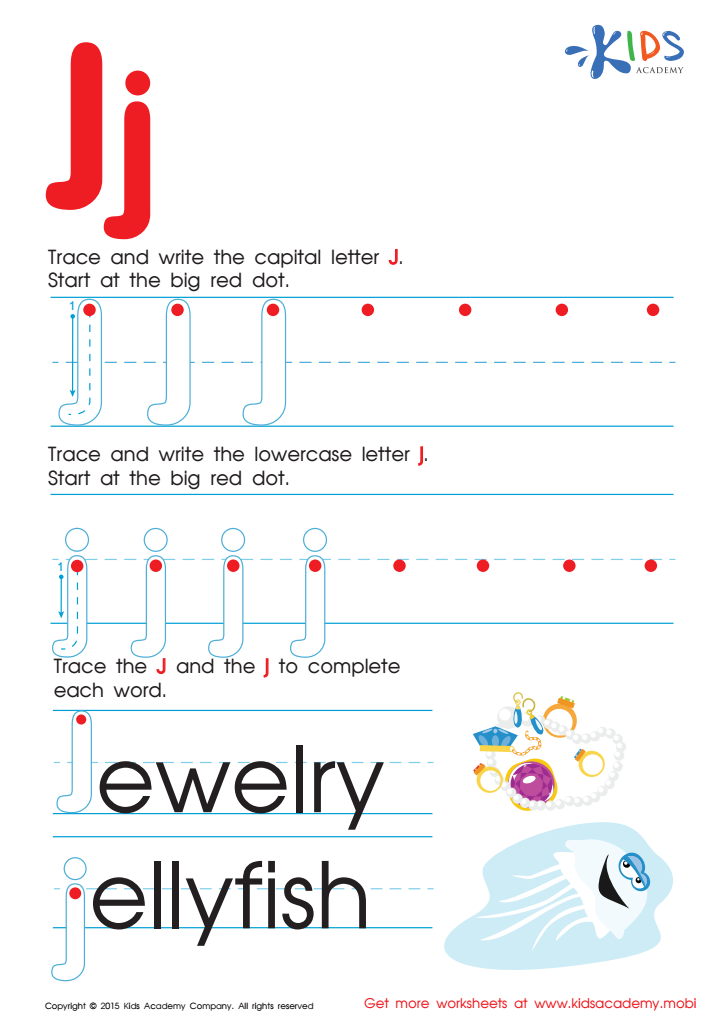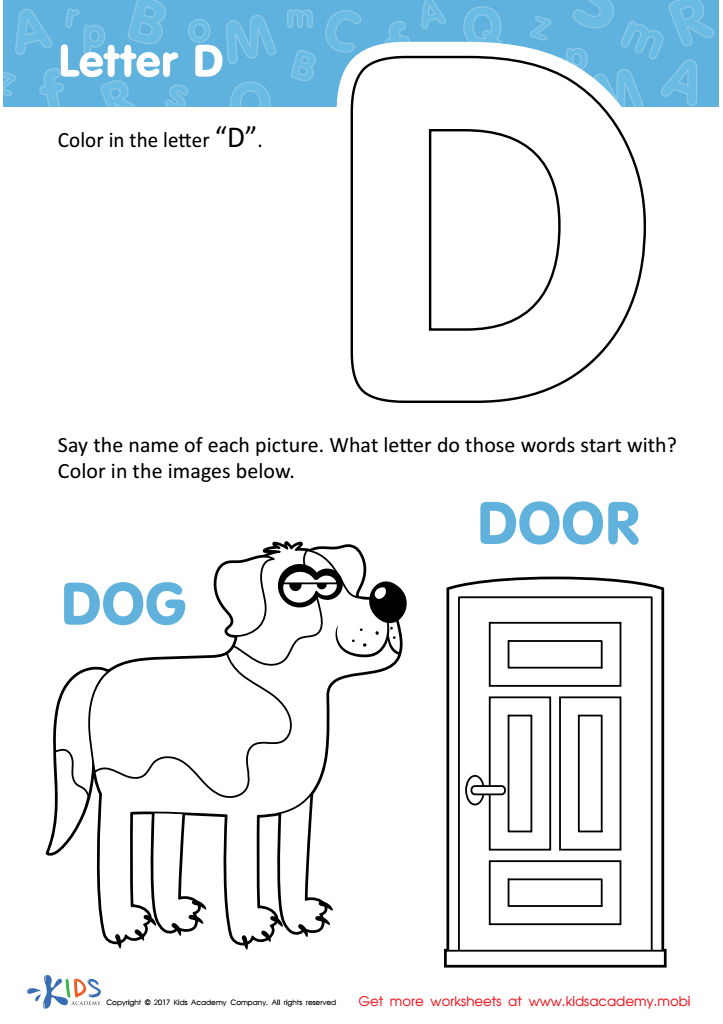Fine motor skills development ABC Letters Worksheets for Ages 3-5
3 filtered results
-
From - To
Developing fine motor skills is essential for young learners, and our ABC Letters Worksheets designed for ages 3-5 make learning both engaging and effective. These carefully crafted worksheets offer a variety of fun activities that help strengthen hand-eye coordination, enhance dexterity, and encourage handwriting readiness. With a focus on the alphabet, children will enjoy tracing, coloring, and cutting out letters, which lays a solid foundation for future learning. Perfect for home or classroom use, these worksheets not only promote fine motor development but also build literacy skills in a playful, accessible way. Start your child’s learning journey today!


Letters G-L Worksheet


Letter J Tracing Page


Letter D Coloring Sheet
Fine motor skills are essential for young children's overall development, particularly in mastering tasks that involve precise hand and finger movements. For children aged 3-5, developing these skills is critical for several reasons.
Firstly, fine motor skills are foundational for academic readiness, especially in literacy. When children learn to write letters, proper grip and control are crucial. Practicing fine motor activities helps them gain confidence and improves their handwriting, making the process of learning letters more enjoyable and effective.
Secondly, engaging in fine motor tasks encourages cognitive development. Activities like tracing, cutting, and coloring develop hand-eye coordination and spatial awareness, which are vital for understanding letters and shapes. These skills also foster problem-solving and critical thinking abilities.
Moreover, fine motor development boosts self-esteem and independence. When children can successfully complete tasks like buttoning a shirt or using scissors, they feel empowered, fostering their desire to learn and explore further.
Parents and teachers should focus on fine motor skill enrichment through games, crafts, and everyday activities. By nurturing these skills, they not only prepare children for academic success but also encourage their social, emotional, and physical growth. Ultimately, it sets the stage for lifelong learning and positive development.
 Assign to My Students
Assign to My Students




















